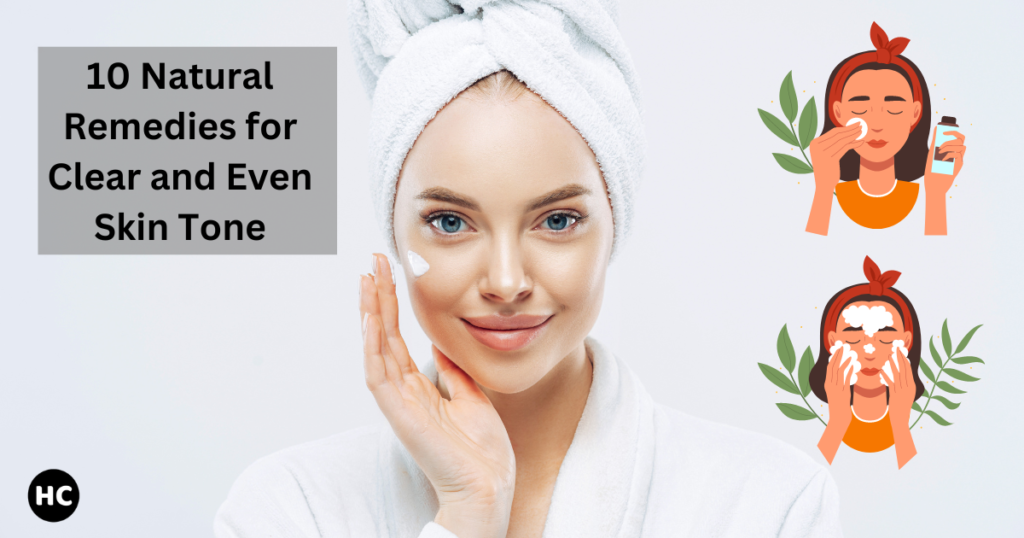Is your skin looking dull or rough? Are dark spots and skin discoloration bothering you? Do you look at your old pictures and envy your blemish-free skin?
Well, your body is ever-evolving and with age, you get more than just experiences. This issues are pretty common and no matter how many things we try for blemish-free , we always end up with some kind of pigmentation.
But the question remains, how to fix it? Don’t want to visit a dermatologist? Don’t worry, we have some highly effective natural remedies that can spare you.
1. Apple Cider Vinegar
Apple cider vinegar possesses antibacterial and antioxidant properties and is often used for treating skin-related issues. It boosts your health and can be an easy alternative to treat pigmentation.
Acne is one of the most common infections. Studies show that acidification of the skin’s surface is a therapeutic strategy for treating disorders.
Research suggests that apple cider vinegar containing acetic acid is one of the most efficient organic acids that treats skin discoloration. Your skin is already acidic to some extent and apple cider vinegar could help regulate the skin’s normal pH.
Leave it for two to three minutes. Rinse it off and repeat the process at least twice a day for good results.
2. Lemon Juice and Honey
We saw how organic acids could be excellent for treating skin disorders, so let’s go with another one.
Lemons are rich sources of vitamin C, commonly called ascorbic acid. Vitamin C is known for its efficiency in photo-protection, skin strengthening and most importantly, the removal of hyperpigmented spots.
But how does vitamin C remove dark spots? Vitamin C inhibits melanin formation and thereby helps with pigmentation.
Honey is responsible for moisturizing the skin. To capture the essence of both ingredients, make a paste by mixing them in appropriate amounts. Apply the mixture to the affected area. Keep it on for 15 to 20 minutes and rinse.
3. Aloe Vera
An age-old comprehensive remedy, aloe vera is quite a promising candidate for dealing with skin disorders. It contains aloesin, a compound responsible for lightening skin.
Aloe vera has additional benefits too. It does everything from deeply moisturizing and nourishing your skin to treating acne and blemishes. It rejuvenates your skin and restores its youthful charm.
And it’s so easy to use because all you have to do is take some aloe vera gel in your palm, apply it as a moisturizer and leave it alone to settle. And guess what? You don’t even need to wash it off. So use it before bedtime, let aloe vera wave its magic wand and heal your skin overnight.
4. Red Onion
Various studies have shown that the ordinary onions we use for cooking are proven skin whitening agents too. This makes it a worthy candidate for our list. Soak some slices of red onion in warm water to extract the juice and carefully apply it to the affected area.
Keep it on for 12 to 13 minutes. Rinse and pat dry. You can repeat this remedy twice a week for better results. Remember, don’t get this in your eyes.
5. Green Tea
It turns out that green tea is more than just a simple healthy beverage. It aids in treating skin pigmentation too. Green tea has an active ingredient called epigallocatechin-3-gallate, but let’s stick to the term ECGC.
Studies have shown that ECGCs in green tea block the cellular processes that lead to skin discoloration and help improve texture and quality.
So go ahead, soak a green tea bag in boiled water for two to three minutes. Once you see it has cooled to a warm temperature that soothes your skin, rub the tea bag over the dark patches. Repeat the process twice a day to see the results for yourself.
6. Milk and Turmeric Mask
For centuries, turmeric has been used across many cultures as a spice that has medicinal properties and cosmetic benefits. Studies show that due to an active component called curcumin, turmeric’s anti-inflammatory properties help treat various dermatological diseases. It fights infections, inhibits acne, and helps scarring.
Speaking of milk, it’s known to have lactic acid which is responsible for treating discoloration. Milk also moisturizes the skin.
How to use it
- Take a few tablespoons of turmeric and some milk.
- Combine them to make a thick paste.
- Apply it to the pigmented area.
- Massage slowly in a circular fashion and leave it for 15 to 20 minutes until it dries up.
- Wash it off with water and pat dry.
7. Licorice Extracts
A native of southern Europe and western Asia, licorice is counted as one of the world’s oldest herbal remedies. And have you heard about its Egyptian links? Well, it was used as a medicinal and flavoring agent in the pharaoh drinks.
But how is it beneficial for us? It’s anti-inflammatory, antimicrobial, and antioxidant properties are exactly what the skin needs. Licorice extract helps reduce pigmentation and fades dark scars.
An active ingredient called glabriden protects the skin from sun damage by acting as a shield against harmful UVB rays. Studies also show that licorice treats various conditions, including acne and eczema, which is the occurrence of dry, itchy, and inflamed.
How to use it
- Take licorice powder in a bowl.
- Add some sandalwood powder for a soothing element.
- Use water to make a thick paste.
- Apply it on your face and wash it off after 15 minutes for radiant and smooth .
8. Mulberry Extracts
These enticing red berries not only taste delicious but are good for your skin as well. Research says that active ingredients present in it block the factors that cause skin pigmentation. They are deemed anti-aging superheroes, fighting fine lines and dark skin patches.
The antioxidant properties also prevent the skin from UV damage and wrinkles caused by free radicals.
How to use it
- Form a paste with some mulberry extracts and a tablespoon of yogurt.
- Apply it all over your face and neck.
- Keep it for 20 minutes and clean it off.
- You can also use mashed bananas if you’re not a yogurt fan.
Another way can be:
- Soak dried mulberry leaves in water and apply them to your skin.
- For better results, follow this routine each day.
9. Papaya, Vitamin E, and Sandalwood
The combined benefits of papaya extracts, vitamin E, and sandalwood are unmatched. Oxidative stress leads to inflammation, skin aging, and impaired wound healing. Antioxidants in the papaya extracts help to counter these effects. It also boosts collagen production and improves skin elasticity.
Vitamin E has been an effective remedy in dermatology for a long time. It is credited for its photoprotective properties to fight solar radiation and prevent s damage by eliminating free radicals.
Sandalwood’s therapeutic effects add a comforting sensation to the mixture. Clinical trials prove it is beneficial in treating conditions like acne, eczema, and common warts.
How to use it
- Try papaya extracts and sandalwood powder.
- Add one capsule of vitamin E.
- Make a paste.
- Apply it.
- Leave it for 15 minutes and then wash it off.
10. Black Tea Water
Studies on guinea pigs have shown that black tea water helps in dealing with hyperpigmentation from sun exposure and also has skin whitening effects. But why does it work so well? The richness of tea extracts in phenolic acids and flavonols make them a good choice for solving skin problems.
How to use it
- Take a tablespoon of black tea.
- Soak it in boiling distilled water.
- Dab a cotton ball and apply it on your face after it cools off a bit.
- Leave it for 10 minutes and then wash it off.
- You can try this remedy every other day and see promising results in a few weeks.
Conclusion
Achieving a clear and even skin tone is a common desire, and numerous natural remedies are available to help you attain this goal. By incorporating these remedies into your skincare routine, you can nurture your skin gently and holistically. Embrace your natural beauty and enjoy the radiant glow of clear !
What causes uneven skin tone?
Uneven skin tone can be caused by various factors such as sun exposure, hormonal changes, genetics, acne scars, and aging.
Are natural remedies effective for achieving clear and even skin tone?
Yes, natural remedies can be effective in improving skin tone. They often contain beneficial ingredients like vitamins, antioxidants, and soothing agents that can help nourish and rejuvenate the skin.
How long does it take to see results with natural remedies?
The timeline for seeing results can vary depending on individual types and conditions. Some people may notice improvements within a few weeks, while others may require longer-term use to see significant changes.
Can natural remedies replace professional skincare treatments?
While natural remedies can complement professional skincare treatments, they may not always be sufficient for addressing certain skin concerns. It’s essential to consult with a dermatologist or skincare professional for personalized advice and treatment options.
Are there any side effects associated with natural remedies?
Natural remedies are generally considered safe, but some individuals may experience allergic reactions or skin sensitivities to certain ingredients.
Can diet and lifestyle affect skin tone?
Yes, diet and lifestyle factors such as hydration, nutrition, sleep, and stress levels can significantly impact skin health and appearance. Consuming a balanced diet, staying hydrated, getting enough sleep, and managing stress can contribute to clearer and more even skin tone.
How often should I use natural remedies for optimal results?
Consistency is key when using natural remedies for skincare. It’s typically recommended to use them daily or as directed for best results.
Are natural remedies suitable for all skin types?
While many natural remedies are gentle and suitable for most skin types, it’s essential to choose products and ingredients that are compatible with your specific skin type and concerns.
Can natural remedies prevent future skin issues?
Natural remedies can help maintain skin health and address existing concerns, which may contribute to preventing future skin issues.










